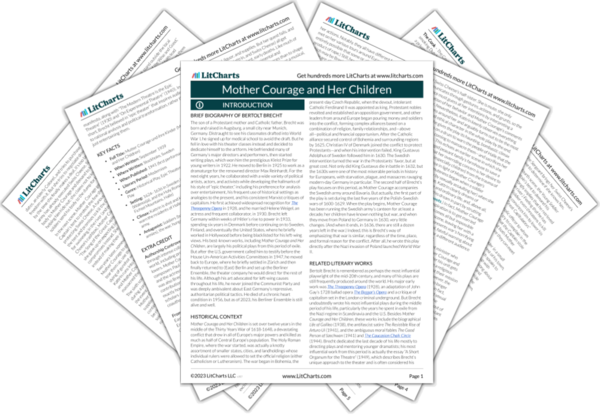Mother Courage’s willingness to leave Kattrin behind again calls into question whether she is really willing to put her family before herself—or if she just views her children as potential sources of labor. But her quick return shows that she actually
is loyal to her daughter—even if she isn’t particularly nice to her. Aware that the Cook was using her all along, Mother Courage mercilessly leaves him behind and gets in the harness to pull the wagon herself for the first time.
